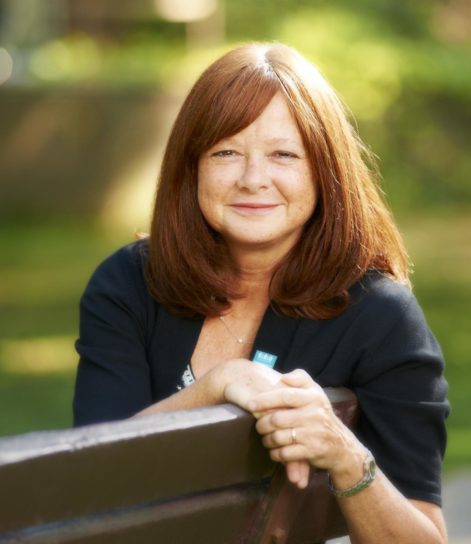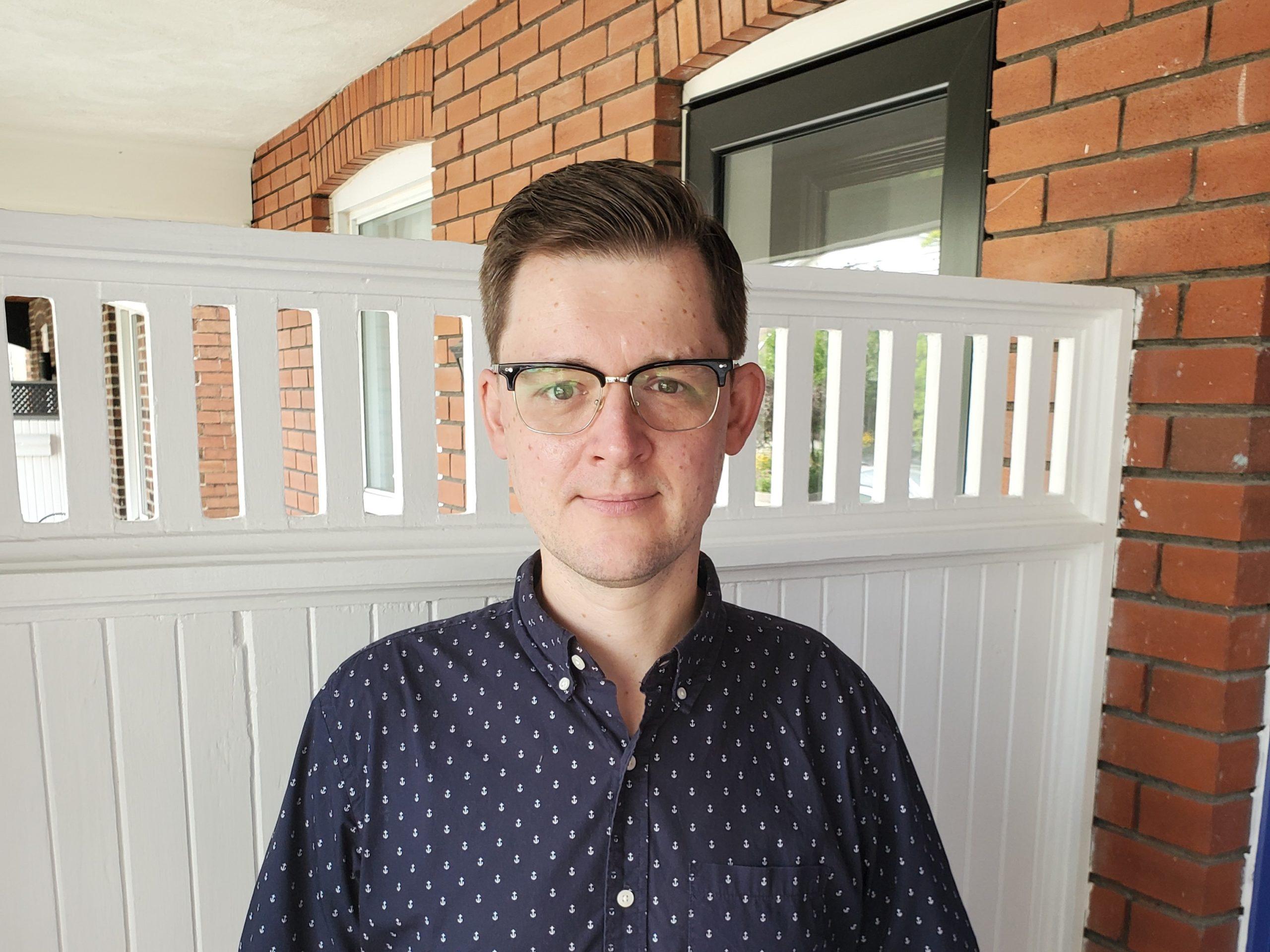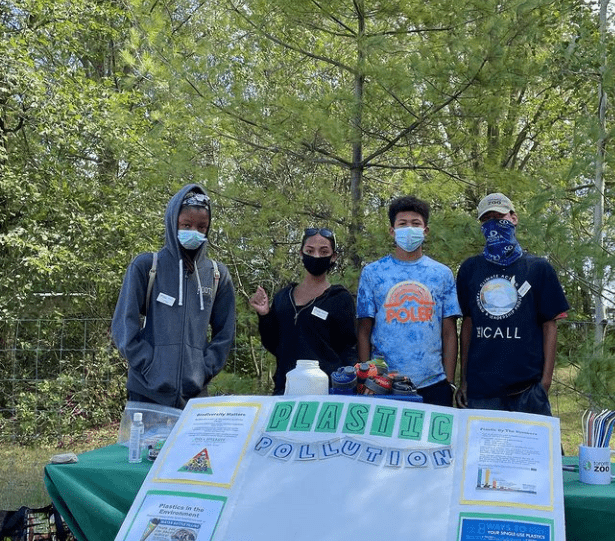The Role of Corporate Canada in Social Service
Cisco Canada and WoodGreen Community Services Presidents weigh in on the importance of strong partnerships between corporate Canada and community-based organizations. Matching investment from corporate Canada with expert social programming serves as a model for how we can move forward together to create innovative solutions to critical social needs.

Anne Babcock. President & CEO of WoodGreen Community Services.
Days into the pandemic, WoodGreen recognized an urgent need for support, particularly around food insecurity and mental health, primarily relating to isolation and stress in Toronto’s vulnerable senior population. The WoodGreen Foundation reached out to corporate Canada with a #COVID19Commitment appeal, urging companies to step forward with support to enable the agency to act quickly. Cisco Canada, under the leadership of Rola Dagher, former president and CEO, immediately answered the call, responding generously with both financial and in-kind support. Recently, Dagher and Anne Babcock, president and CEO of WoodGreen, shared their thoughts on corporate leadership and the need for partnerships within the social service sector – both during COVID-19 and moving forward.
“When COVID-19 hit, I worried about our employees, our customers and partners, and our community,” said Dagher. “Cisco is all about giving back – it’s in our DNA. We were aching to make sure that Cisco was swift in its support of community partners by connecting the unconnected through our technology. For me, it wasn’t only the right thing to do, it was the smart thing.
“When the pandemic hit, we were blown away by the number of Cisco employees that came forward with proposals of support for Canadian communities. Because we’d partnered with WoodGreen in the past, we knew that Cisco could help make an impact on the incredible work the organization does for seniors and newcomers and for mental health. It was one of the simplest and quickest decisions to make. We were saving $50,000 out of our budget, so we wondered whether we could redirect that money and give it back to the community.’”
And that’s exactly what Cisco did.

Rola Dagher, former President & CEO of Cisco Systems Canada.
“The leadership and innovation shown by Cisco has been outstanding,” said Babcock. “For them to step up like this and repurpose $50,000 from their pre-COVID budget is exceptionally generous. Their support has had a huge impact on the marginalized people we serve during this incredibly difficult time.”
Cisco did not stop with their own contributions; they brought in additional partners including Rogers Communications and Compugen to help reduce isolation and support the mental well-being of some of WoodGreen’s most vulnerable clients – particularly the formerly homeless, senior men in WoodGreen’s First Step to Home (FSTH) program. Rogers outfitted all 28 units in the FSTH building with affordable Wi-Fi; Cisco donated equipment to ensure access throughout the building; and Compugen was able to provide the men with refurbished laptops. This corporate collaboration ensured that the men – who are recovering from many hard years on the streets – could physically distance in safety within their small bachelor apartments, while still staying connected to the world. Dagher noted, “We are a huge supporter of mental health, and as much as everyone is physically apart today, we want to make sure that people are not alone.”
“Agencies like WoodGreen need this kind of support in order to meet the skyrocketing need in our community,” said Babcock. “Once COVID started, frail, already-isolated seniors were confined to their homes, food insecurity was rampant, and almost overnight, we had to shift the vast majority of our previously face-to-face programs – including newcomer settlement and social work – to virtual service delivery. The individuals and families WoodGreen serves are already among the city’s most disadvantaged so, for them, the impact of COVID has been exacerbated. Philanthropic support became even more critical; Cisco’s vision and generosity, and that of other like-minded corporations, allowed us to help those who were struggling the most.”
The pandemic has highlighted cracks in our city’s social fabric – key issues that WoodGreen has been championing for years. Homelessness and the lack of affordable housing; the need for wrap-around community care programs, which help people stay at home safe and out of hospital; and the increased need for support amongst marginalized communities and those facing multiple barriers, including black youth, youth aging out of foster care, and newcomers to Canada.
“COVID-19 has shone a light on the needs and inequity that exist in our city,” Babcock said. “It has motivated people and organizations to take action to support our community, both financially and with their voices. We have seen incredible examples of generosity, creativity, and willingness to have uncomfortable conversations to move issues forward. Our hope is that these steps are the first of many, and that we continue to work together to make long-lasting, positive change.”
“We need to get together as one Canada with one goal, one strategy. We can’t do it alone. The government can’t do it alone; WoodGreen can’t do it alone and corporate Canada can’t do it alone. We have to integrate, collaborate and focus the lessons learned to help us do better. I hope this pandemic has taught us all just how critical it is to work together and move faster to bring about change,” said Dagher.
The WoodGreen Foundation’s corporate challenge now continues via The Difference Makers campaign, a $20M poverty reduction campaign, half of which is dedicated to increasing Toronto’s affordable housing stock, a quarter towards programming for homeless single mothers, and the rest towards holistic senior care, marginalized youth, and newcomers. Babcock explains, “Our team does incredible work, but the issues our city is facing are huge. We need the support of corporate Canada to really move the needle and are excited that partners like Cisco understand how important this work is.”
“I was born and raised in Lebanon, and most of my life there was spent in a bomb shelter. When I came to Canada thirty-one years ago, I started from nothing…absolutely nothing,” Dagher reflected. “I arrived with a baby, two suitcases and no English. To be able to live in a country like Canada, it makes me so proud to be able to give back to people and help the community that has given me so much.”
About WoodGreen Community Services
WoodGreen combines significant scale and a proven track record with an entrepreneurial mindset, continuously seeking and developing innovative solutions to critical social needs.
With a rich history spanning more than 80 years, WoodGreen is one of the largest social service agencies in Toronto, serving 37,000 people each year from 36 locations. Together we help people find safe, affordable housing, seniors live independently, internationally-trained professionals enter the job market, parents access childcare, children and youth access after-school programs, newcomers settle in to Canadian life, homeless and marginalized people get off the streets, youth find meaningful employment and training and provide a wide range of mental health supports.
About Cisco Canada
Cisco (NASDAQ: CSCO) is the worldwide technology leader that has been making the Internet work since 1984. Our people, products, and partners help society securely connect and seize tomorrow’s digital opportunity today. Discover more at newsroom.cisco.com and follow us on Twitter at @Cisco.


